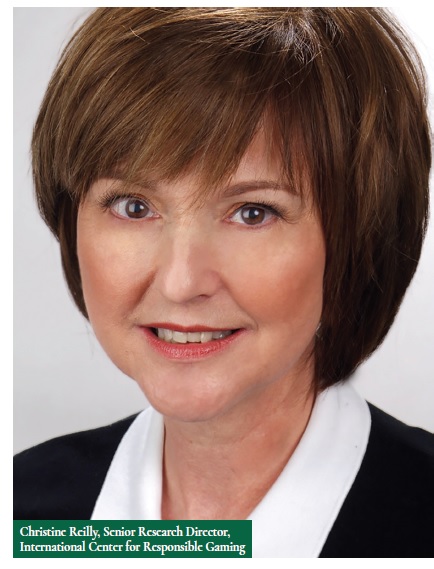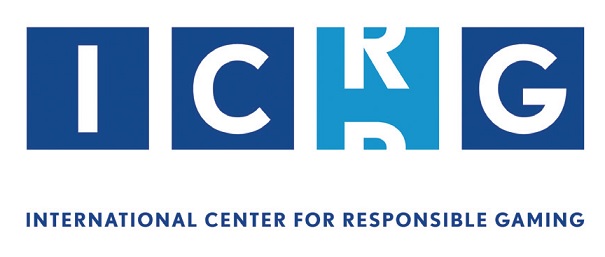Interview with Christine Reilly, Senior Research Director International Center for Responsible Gaming
What can you tell us about the ICRG and the services the organisation provides?
The ICRG was founded in 1996 as a non-profit corporation. The ICRG mission is to help individuals and families affected by gambling disorder through rigorous scientific research on gambling disorders and evidence-based educational programming for health professionals, industry professionals and the public. The ICRG awards grants on a competitive basis to universities and  research centers focused on understanding, preventing and treating gambling addiction. Educational programs include webinars, an annual conference and publications designed to translate scientific research for a public audience. The ICRG is funded by corporations in the gambling entertainment field.
research centers focused on understanding, preventing and treating gambling addiction. Educational programs include webinars, an annual conference and publications designed to translate scientific research for a public audience. The ICRG is funded by corporations in the gambling entertainment field.
Can you provide details on any research studies currently underway?
Current research projects are exploring the effectiveness of responsible-gaming programs for lotteries and casinos; using virtual reality to reduce problematic gambling among youth; clinical decision-making in the treatment of gambling disorder; gambling disorder and suicide in India; gambling problems among homeless veterans; and a geospatial app designed to prevent problematic gambling.
When and how did you first become interested in the gaming sector?
I was hired by the ICRG (then the National Center for Responsible Gaming) in 1997. It was an exciting time because this was the first time the gambling field was infused with a large amount of funding.
What is the history behind the setting up of CollegeGambling.org and can you explain to readers and how it benefits students and colleges?
The ICRG funded a series of research projects at Harvard Medical School to examine college gambling. A national survey revealed that even though college students gamble, only a third of colleges and universities have a gambling policy. To remedy this situation, the ICRG created CollegeGambling.org to inform school administrators and health professionals and students about the risks of gambling.
Access to gambling in the U.S. has never been as high as it currently is in its history. How is the International Center for Responsible Gaming, reacting to what will clearly be an increase in participants whom have now easy access to gamble?
One of the most important initiatives is to support prevention efforts, especially responsible-gaming programs offered by gaming operators. We are currently funding research projects that are evaluating the effectiveness of responsible gaming strategies.
Has the ICRG any research findings showing any changing gambling trends during the last 18 months and are their statics for accessing the impact over the years ahead?
The major change has been the expansion of gambling to online operators and, in the U.S., the advent of sports gambling. The ICRG established a Sports Wagering Research Fund to support cutting-edge research on sports betting. The award of a grant will be announced in fall of 2021. Other areas are of interest but are still too new to study, such as betting on esports.
And finally, how can readers find out more about the ICRG?
Readers are welcome to learn more by visiting www.icrg.org
































